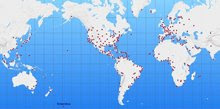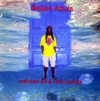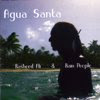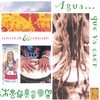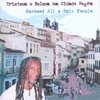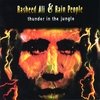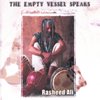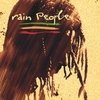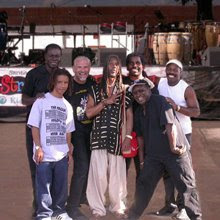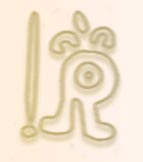This week's show is a reminder that the journey of African-Americans in the United States towards acceptance of their African identity has been a long and winding road.
There have been waves of
Afrocentricity that have ebbed and flowed through the courses of US history. This desire to learn more about a forgotten legacy often at odds with a desire to
"move on" and become an accepted member of a uniquely
American identity. For many in the United States there was a legacy of shame and denial made easier by the absence of a strong, easily identifiable African culture. Surely, the Africanisms are present in the expressions of a US culture but the dots were never really connected to Africa. Instead, these cultural affectations were heralded as being the fabric of a uniquely
American expression. Jazz, blues, gospel, rhythm and blues all being viewed through the prism of a post-slavery expression. Though there may have been some resignation that Africa was too distant a memory to uphold for the formerly enslaved, the slave masters certainly promoted this concept to their benefit.
Unlike the Caribbean and parts of South America, the playing of the traditional African drums were banned in the United States. This might seem to some as a civil ordinance rather than the evisceration of an identity. To those who think the drums are merely musical instruments, it is not easy for them to understand that the drums occupied such a central force in the spiritual lives of Africa's people. the drum was an instrument for communicating with the divine. The drums and their usage also drew lines between African tribal and ethnic groups. For instance; taking away the Ashanti drums from the Ashanti meant taking away a language that separated them from their neighboring states and ethnicities. For those who see Africa and Africans as a mass of
Black People, this
subtle nuance of history is lost. Of course, the Africans south of the
Rio Grande River overcame this by merging some universal aspects of their differing cultures. As in Brasil and Cuba, were elements of
Yoruba, Ashanti, Dahomey and Congo cultures forged a sometimes indistinct musical and liturgical mixture. It was certainly more advantageous to preserve a collective African identity than to quibble over the details of ethnic delineations.
In the US, the African ceased to exist as an African, they were transformed into
Blacks. The monolithic concept of Africans as
Blacks that still persist in America has also been promoted as a worldwide concept. Africans never referred to themselves in this way. Africa was never monochromatic, this false identity became a real detriment to the cultural understanding of the African Diaspora in the US.
This false identity continues to be promoted in the image of
Black History in the US. As a public school teacher I have participated in many
Black History Month Celebrations and the content is always focused on a post-slavery reality.
As a Caribbean-African I have no desire to down play the fact that my Caribbean culinary diet, musical expression, cultural nuance and syntax are heavily African in identity. While this pride has often been resented by those of the African Diaspora of the United States, it must be expressed unabashedly.
There is a need to celebrate any surviving African identities rather than merely celebrating surviving slavery. There are African cultural identities to be found in the US, if you look hard enough.
The culture and people of the
Mississippi Delta have been looked down upon by many in urban America. Yet, much like the Caribbean and Brasil, this region of the US represents a fertile crescent of African culture that should be revered. In looking back to Africa we must not forget where to look for
Africa in America.
intro: The Drum / Sounds of Blackness / Africa to America
Set one:
1. Took Away the Drum / Mighty Mo Rodgers / Blues is My Wailing Wall
2. I Know Why the Caged Bird Sings / Branford Marsalis / Buckshot LeFonque
Set two:
1. Going Back to My Roots / Lamont Dozier /
Set three:
1. Say it Loud / James Brown
2. Black Man / Stevie Wonder
Set four:
1. Africa / Rasheed Ali & Rain People
2. Ngiculela, Es Una Historia / Stevie Wonder
Set five:
1. A Change is Gonna Come / Neveille Bros. / Yellow Moon
2. Blues is My Wailing Wall / Mighty Mo Rodgers
3. Looking for Ekwiano / Rasheed Ali / Thunder in the Jungle
4. I Will Cry for You / Rasheed Ali / Thunder in the Jungle













